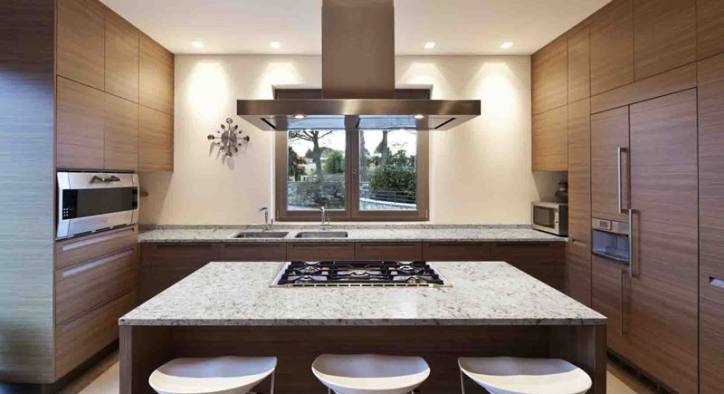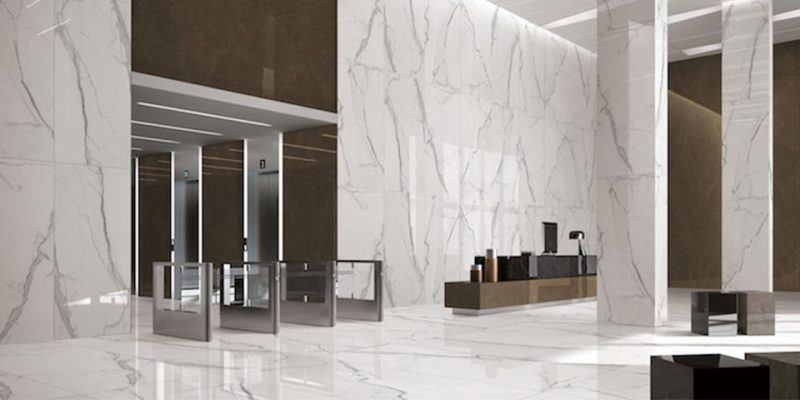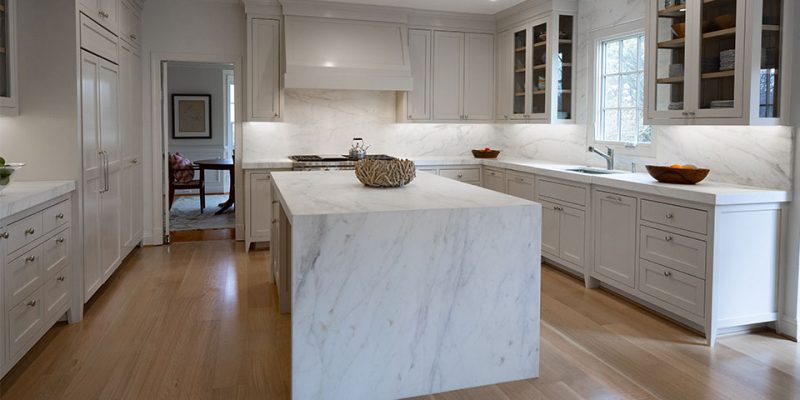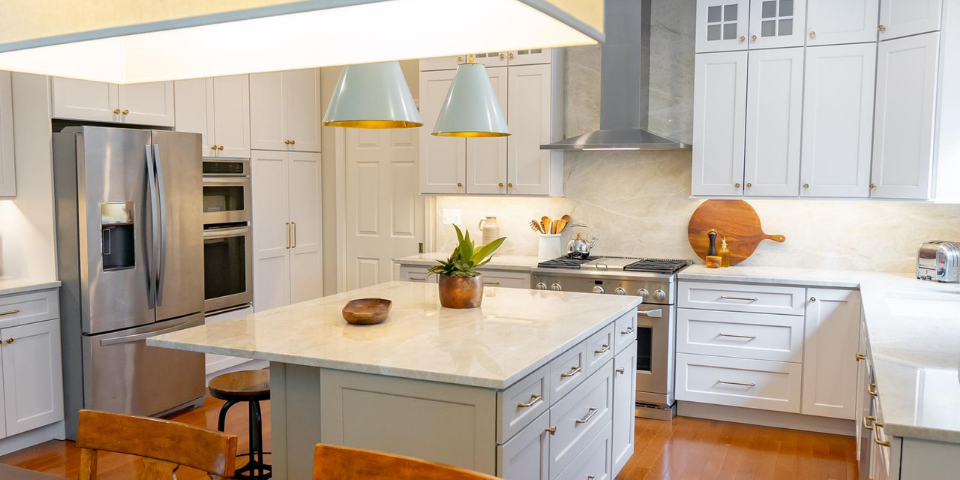Introduction
Kitchen renovations are a significant investment, and budget friendly options can help you achieve your dream kitchen without breaking the bank. Countertops not only define the aesthetics of your kitchen but also play a pivotal role in daily tasks such as food preparation, serving, and even socializing. A well-chosen countertop can uplift the kitchen’s functionality, making the cooking and dining experience more efficient and enjoyable.
Choosing the right countertop material is crucial, as it needs to be durable, functional, and aesthetically pleasing, all while staying within your budget. In the following sections, we will discuss different budget friendly countertop options that can be ideal choices for your kitchen renovation project.

Types of Countertop Materials
There are several types of budget friendly countertop materials available in the market, and each has its unique features and characteristics. Let’s take a closer look at some of the popular options:
Laminate Countertops
Laminate countertops are one of the most budget friendly options available in the market. They are made of layers of paper or fabric, impregnated with resin and bonded to particleboard or plywood. Laminate countertops are available in a wide range of colors, patterns, and textures, making them versatile and suitable for various kitchen styles. They are easy to clean, low-maintenance, and resistant to stains and scratches, making them ideal for busy kitchens.
Pros of Laminate Countertops
- Affordability: Laminate countertops are the most budget friendly option, making them ideal for those on a tight budget.
- Versatility: Laminate countertops come in a wide variety of colors, patterns, and textures, allowing you to choose the perfect design for your kitchen.
- Easy Maintenance: Laminate countertops are easy to clean and require minimal maintenance, saving you time and effort.
- Durability: Laminate countertops are resistant to stains and scratches, making them suitable for everyday use in a busy kitchen.
Cons of Laminate Countertops
- Not Heat Resistant: Laminate countertops are not heat resistant and can get damaged if hot pots or pans are placed directly on them.
- Vulnerable to Water Damage: Laminate countertops are not waterproof and can get damaged if exposed to prolonged moisture.
- Less Durable: Compared to other countertop materials, laminate countertops may not be as durable and may need to be replaced more frequently.
Butcher Block Countertops
Butcher block countertops are another budget friendly option that adds warmth and natural beauty to your kitchen. They are made of strips of hardwood, such as maple, oak, or cherry, that are glued together to create a solid surface. Butcher block countertops are known for their durability and ability to withstand heavy use, making them ideal for food preparation areas. They are also naturally resistant to bacteria and can be sanded and refinished to maintain their appearance over time.
Pros of Butcher Block Countertops
- Warmth and Natural Beauty: Butcher block countertops add warmth and a natural, rustic charm to your kitchen, making it a cozy and inviting space.
- Durability: Butcher block countertops are known for their durability and can withstand heavy use, making them ideal for food preparation areas.
- Refinishable: Butcher block countertops can be sanded and refinished, allowing you to maintain their appearance and extend their lifespan.
- Eco-friendly: Butcher block countertops are made from renewable hardwood sources, making them an eco-friendly choice for your kitchen.
Cons of Butcher Block Countertops
- Maintenance: Butcher block countertops require regular maintenance, such as oiling and sealing, to prevent stains and water damage.
- Vulnerability to Heat and Moisture: Butcher block countertops can get damaged if exposed to excessive heat or prolonged moisture, requiring careful handling and maintenance.
- Scratches and Dents: Butcher block countertops can be prone to scratches and dents, although these can add to the natural patina and character of the wood.

Ceramic Tile Countertops
Ceramic tile countertops are another budget friendly option that offers versatility in design and durability. Ceramic tiles are made from clay, which is fired at high temperatures to create a hard, durable surface. Ceramic tile countertops are available in a wide range of colors, patterns, and sizes, allowing you to create a custom look for your kitchen. They are resistant to stains, heat, and scratches, making them suitable for busy kitchens.
Pros of Ceramic Tile Countertops
- Design Versatility: Ceramic tile countertops offer endless design possibilities, with a wide range of colors, patterns, and sizes to choose from.
- Durability: Ceramic tile countertops are resistant to stains, heat, and scratches, making them durable and long-lasting.
- Affordable: Ceramic tile countertops are a budget friendly option compared to other countertop materials, making them a cost-effective choice for kitchen renovations.
- Easy Maintenance: Ceramic tile countertops are easy to clean and require minimal maintenance, making them convenient for busy households.
Cons of Ceramic Tile Countertops
- Grout Lines: Ceramic tile countertops have grout lines that can be prone to staining and require regular cleaning and maintenance.
- Uneven Surface: Ceramic tile countertops have a slightly uneven surface due to the grout lines, which may not be ideal for some food preparation tasks.
- Risk of Chipping or Cracking: Ceramic tiles can chip or crack if heavy objects are dropped on them, requiring careful handling.
Concrete Countertops
Concrete countertops are a trendy and budget friendly option that can add an industrial and modern look to your kitchen. They are made by mixing cement, water, and aggregates, and then poured into molds to create a solid surface. Concrete countertops can be customized with different colors, textures, and finishes to match your kitchen style. They are durable, heat resistant, and can be sealed to prevent staining.
Pros of Concrete Countertops
- Customizable: Concrete countertops offer endless design possibilities, as they can be customized with different colors, textures, and finishes to match your kitchen style.
- Durability: Concrete countertops are durable and can withstand heavy use, making them suitable for food preparation areas.
- Heat Resistant: Concrete countertops are heat resistant, allowing you to place hot pots and pans directly on the surface without damaging it.
- Modern and Trendy Look: Concrete countertops can add an industrial and modern look to your kitchen, making it a stylish and trendy space.
Cons of Concrete Countertops
- Prone to Cracking: Concrete countertops can be prone to cracking if not properly sealed or installed, requiring regular maintenance and care.
- Heavy and Hard: Concrete countertops are heavy and hard, which can make installation and handling more challenging compared to other countertop materials.
- Limited Comfort: Concrete countertops can be less comfortable to work on for extended periods of time, as they are hard and less forgiving on the joints.
Laminate Countertops
Laminate countertops are an affordable and versatile option that can mimic the look of more expensive materials, such as granite or quartz. Laminate countertops are made by layering a sheet of decorative paper onto a particleboard or plywood core and sealing it with a protective layer. They are available in a wide range of colors, patterns, and finishes, making it easy to find a style that fits your kitchen decor.
Pros of Laminate Countertops
- Affordability: Laminate countertops are one of the most budget friendly options available, making them a cost-effective choice for kitchen renovations.
- Versatility: Laminate countertops come in a wide range of colors, patterns, and finishes, allowing you to mimic the look of more expensive materials without the high price tag.
- Easy Maintenance: Laminate countertops are easy to clean and require minimal maintenance, making them convenient for busy households.
- Resistant to Stains and Water Damage: Laminate countertops are resistant to stains and water damage, making them durable and long-lasting.
Cons of Laminate Countertops
- Susceptible to Scratches and Chips: Laminate countertops can be prone to scratches and chips, especially along the edges, requiring careful handling and maintenance.
- Limited Heat Resistance: Laminate countertops are not as heat resistant as other materials, such as granite or quartz, and can be damaged by hot pots and pans.
- Particleboard or Plywood Core: Laminate countertops have a particleboard or plywood core, which can be susceptible to water damage if not properly sealed, requiring regular maintenance.

Solid Surface Countertops
Solid surface countertops are a popular choice for their versatility and durability. Solid surface countertops are made from synthetic materials, such as acrylic or polyester, and are available in a wide range of colors and patterns. They are seamless, non-porous, and can be custom-made to fit any kitchen layout. Solid surface countertops are resistant to stains, heat, and moisture, making them suitable for busy kitchens.
Pros of Solid Surface Countertops
- Versatility: Solid surface countertops come in a wide range of colors and patterns, allowing you to create a custom look for your kitchen.
- Durability: Solid surface countertops are durable and can withstand heavy use, making them ideal for food preparation areas.
- Non-porous: Solid surface countertops are non-porous, which means they are resistant to stains, bacteria, and water damage, making them easy to clean and maintain.
- Seamless: Solid surface countertops are seamless, which means there are no visible seams, making them aesthetically pleasing and easy to clean.
Cons of Solid Surface Countertops
- Vulnerability to Scratches and Heat: Solid surface countertops can be prone to scratches and heat damage, requiring careful handling and maintenance.
- Synthetic Material: Solid surface countertops are made from synthetic materials, which may not be as environmentally friendly as natural stone or wood options.
- Cost: Solid surface countertops can be more expensive compared to other budget friendly countertop options, such as laminate or ceramic tile countertops.
Conclusion
When it comes to budget friendly countertop options for your kitchen renovation, there are plenty of choices to consider. Butcher block countertops offer warmth, natural beauty, and durability, while ceramic tile countertops provide design versatility and easy maintenance. Concrete countertops add a modern and industrial look to your kitchen, and laminate countertops provide affordability and versatility with various color and pattern options. Solid surface countertops offer durability, non-porous properties, and a seamless look for a more contemporary kitchen design.
Before making a decision, it’s essential to consider your budget, style preferences, and the level of maintenance you are willing to undertake. Each option has its pros and cons, so carefully evaluate your needs and priorities to choose the right countertop material for your kitchen renovation.
Frequently Asked Questions (FAQs)
- Q: Are budget-friendly countertops durable? A: Yes, budget friendly countertop can be durable, depending on the material and proper maintenance.
- Q: Can laminate countertops mimic the look of natural stone? A: Yes, laminate countertops come in various patterns and finishes that can closely mimic the appearance of natural stone.
- Q: Are concrete countertops suitable for a modern kitchen design? A: Yes, concrete countertops can add a modern and industrial look to a kitchen when properly installed and sealed.
- Q: How do I maintain solid surface countertops? A: Solid surface countertops are easy to clean and maintain, usually requiring regular wiping with a mild soap and water solution.
- Q: Can I install butcher block countertops myself? A: Yes, with proper tools and instructions, butcher block countertops can be installed as a DIY project for budget-conscious homeowners.


Pingback: Transform Your Kitchen with Stunning Countertop Designs | Fairfax Marble